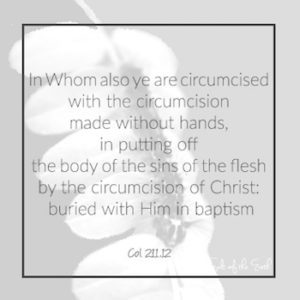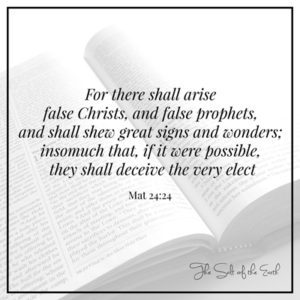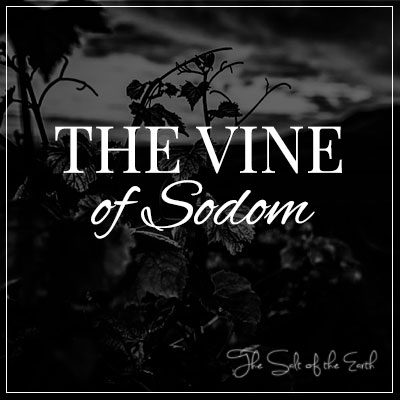We don’t read much about the Nicolaitans in the Bible and about the doctrine of the Nicolaitans and the works of the Nicolaitans that are mentioned in Revelation 2:6 and Revelation 2:15. We only know from the Bible that the doctrine of the Nicolaitans and the works of Nicolaitans occurred in Ephesus and in Pergamos and that Jesus hated the doctrine of the Nicolaitans and the works of the Nicolaitans. The church at Ephesus was a spiritually mature church and hated the works of the Nicolaitans, just like Jesus. However, the church in Pergamos was apparently not as spiritually mature as the church at Ephesus. Because although the Christians were holding fast to the Name of Jesus and didn’t deny their faith in Jesus Christ, some of the Christians were holding the doctrine of the Nicolaitans. The church of Pergamos didn’t hate the doctrine of the Nicolaitans and the works of the Nicolaitans like Jesus, while the church of Ephesus did hate the Nicolaitan’s doctrine and their works. Since Jesus hated the doctrine of the Nicolaitans and the works of the Nicolaitans and were not according to His will, Jesus called the church in Pergamum to repent and remove a.o. this Nicolaitans doctrine or else Jesus would come quickly and fight against them with the sword of His mouth. But what are the doctrine and works of the Nicolaitans, which Jesus hated? Who were the Nicolaitans in the Bible?
Who were the Nicolaitans in the Bible?
Although we only read in the Book of Revelation about the doctrine and works of the Nicolaitans and that Jesus hated their works, the early church fathers have written about the sect of the Nicolaitans. Who were the Nicolaitans? According to some of the church fathers, the Nicolaitans were the followers of Nicolas of Antioch, who is mentioned in the Book of Acts chapter 6, as one of the seven Spirit-filled men of the early church, who were set before the apostles and the daily ministration of the widows.
While the church was growing and the number of disciples multiplied in Jerusalem, there arose a murmuring of the Grecians against the Hebrews, because their widows were neglected in the daily ministration. Since the twelve apostles gave themselves continually to prayer and to the ministry of the word, they asked the disciples to look among them for seven men of honest report, who were full of the Holy Ghost and wisdom, whom they could appoint over that business. Nicolas of Antioch was one of the seven deacons, who were chosen and appointed for this ministry (Acts 6:1-7).
Nicolas was not a Jew by nature but Nicolas was a proselyte from Antioch. This means that Nicolas of Antioch was a Gentile and was converted from paganism to Judaism and was circumcised in the flesh and held the law of Moses. From Judaism, Nicolas was converted to Christendom and became a follower of Jesus Christ.
On the basis of his faith, Nicolas received the baptism with the Holy Ghost. Because these seven men, who were chosen, were wise men of an honest report and full of the Holy Ghost.
Nicolas was appointed as a deacon and was given the responsibility for the daily ministration.
According to the early church fathers (Irenaeus, Hippolytus, Eusebius, Epiphanius, Theodoret, Isidore of Seville, Clement) Nicolas became apostate from the sound doctrine of Jesus Christ and the apostles and preached a false doctrine in the church of Christ.
Some said that the Nicolaitans were a gnostic sect. Although the majority of the early church father wrote about the Nicolaitans being followers of Nicolas of Antioch, one of the seven deacons, Clement wrote that the Nicolaitans were followers of another Nicolas.
Whatever the truth may be, one thing is for sure, the Nicolaitans deviated from the sound doctrine of Jesus Christ and the apostles, and through their false doctrines, they were led into the bondage of sin.
What are the doctrine and works of the Nicolaitans?
The doctrine and works of the Nicolaitans came forth from a wrong interpretation of the grace of God that was preached by the apostles. They misused the grace of God and the liberty in Christ to fulfill their carnal (sexual) lusts and desires.
The Nicolaitans believed and said that a person is saved by grace and therefore it doesn’t matter how you live. The Nicolaitans said that by faith in Jesus Christ, the spirit of a person is saved, but since you are bound by the flesh, in which evil is present, you will always remain a sinner and always keep sinning. You serve God through your spirit, but you keep serving your flesh and its lust and desires during your life on earth.
What the Nicolaitans were actually saying is, that you serve God through your spirit, but you serve the devil through your flesh (soul and body).
But Jesus says that a person can’t be divided and can’t serve two masters of two kingdoms.
A person lives in the Kingdom of God and serves God or a person lives in the kingdom of the devil and serves the devil (Matthew 4:10; 6:24, Luke 4:8; 16:13).
A person can say that (s)he believes and is saved, but his or her speech and deeds prove whether the person is truly saved (Read also: ‘Why God gave His only begotten Son?‘).
If you do what the Word says and do the will of God, then you belong to God. But as long as you keep serving the devil with your flesh, by obeying and doing the will of the flesh and persevering in sin, then the devil is not your enemy, but your master, and you belong to the devil. Because you listen to the devil and obey the devil and do his will (a.o. John 8:44, 1 John 3:8 (Read also: ‘The will of God vs the will of the devil’).
Every kingdom that is divided against itself can’t exist. You can’t serve God in the Kingdom of God with your spirit and serve the devil in the kingdom of darkness with your flesh. That’s a lie of the devil, which the Nicolaitans believed and many Christians today still believe.
The Nicolaitans misused their freedom in Christ and compromised with the world and lived in lasciviousness. They were involved in fornication (sexual uncleanness) and idolatry and adopted pagan rituals and practices in their Christian faith and in the church. They followed the lusts, desires, and will of their flesh and lived in lasciviousness, just like the Gentiles.
The spirit of the Nicolaitans in the church
The demonic powers that were active in the Nicolaitans are still active today. They still try to enter the lives of Christians and lead the Christians astray. Since leaders influence the people, the main target of the devil are the spiritual leaders of the church. That’s why the spiritual leaders of the church should consecrate their lives wholly to God and His will. They should keep their minds ‘clean’ from the things of this world and their minds and bodies holy (consecrated to the Lord). The devil and his demons will do everything they can to seduce the leaders of the church and captivate their minds and lead them astray through false visions, revelations, prophecies, philosophies, experiences, and their own interpretations of the Word.
The devil knows, that if you convince a spiritual leader of false doctrine, you not only have won the life of the church leader, but also the lives of the people, who follow the church leader. Because if the church leader believes and preaches false doctrines, the people will believe and follow the false doctrines of their church leader.
Look at the devil and the fallen angels (demons). When the devil became disobedient to God, his followers stayed loyal to him. The devil took his followers with him, as they fell from their position and were cast upon the earth.
The Nicolaitans followed Nicolas and exalted Nicolas above God and His Word, which became visible by their works and the way they lived.
Just like Nicolas and other false teachers of the early church (2 Peter 2, 1 John 4:1, Jude 1), there are still false teachers, false prophets, and false preachers these days, who have exalted themselves as god and have many followers, who blindly follow their leader and worship the leader (Read also: ‘Many pastors are leading the sheep into the abyss’).
The majority of believers don’t read and study the Bible themselves. They don’t examine and compare the doctrines that are preached with the truth of the Word of God. They are not taught by the Word and the Holy Spirit but believe everything that the spiritual leader says and consider it the truth.
Even in our days, the message of grace and freedom in Christ has been taken out of context through false doctrines.
The grace of God and the freedom in Christ are misused by many to keep living after the carnal lusts and desires and serve the will of the flesh and persevere in sin. Just like the Nicolaitans, who claimed that it doesn’t matter how you live, since the flesh is evil anyway. You are saved by faith. But the devil and his followers (demons) also believe and they are not saved.
“What do you call Me Lord, Lord, but do not the things which I say”
When you believe in Jesus Christ and follow Him, you shall do what Jesus says, and you shall not get involved with the works of the flesh, because you have laid down your flesh; your old life in Christ. If you keep doing the works of the flesh, then this proves that your flesh is not crucified with Christ and that you have not laid down your flesh and killed the deeds of the flesh (a.o. Romans 6; 8).
Jesus commanded the church of Pergamos to repent of a.o. the doctrine of the Nicolaitans and not be involved in idolatry and fornication, but remove them out of their midst or else Jesus would come quickly and fight against them with the sword of His mouth. His words still apply to His Church. Therefore, let us listen to Jesus Christ and obey His commandments and do what He says before it’s too late.
Read also: What is the doctrine of Balaam? and What is the doctrine of Jezebel and how do you recognize the spirit of Jezebel?.
‘Be the salt of the earth’
Source: Thayer’s Greek Lexicon, Zondervan’s illustrated Bible dictionary, Bible encyclopedia, Wikipedia






